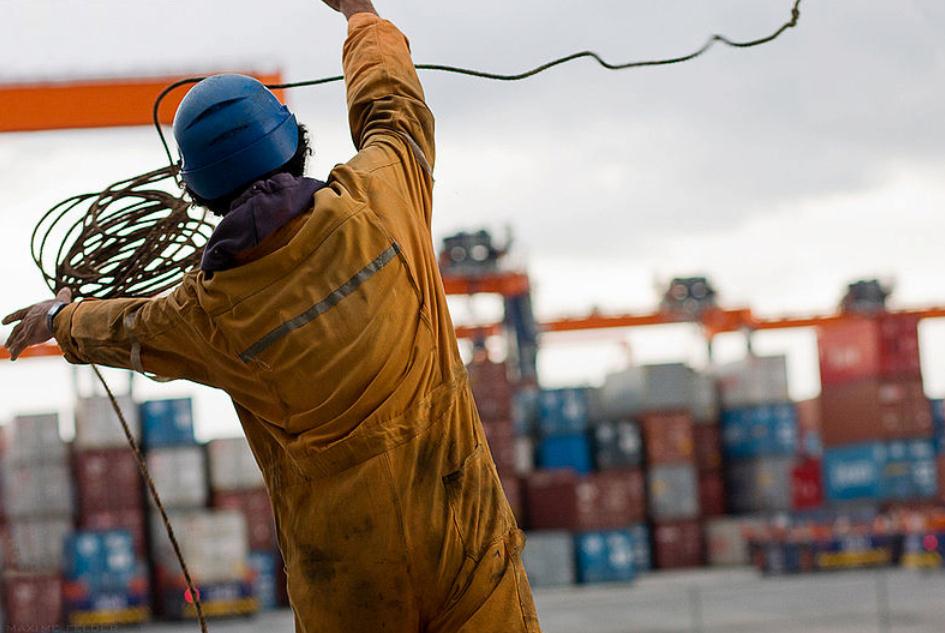
Working at sea is both adventurous and challenging. Seamen, including sailors, fishermen, and offshore workers, often encounter risks and uncertainties while on the job. Maritime occupations come with their own unique set of challenges, and to mitigate these, seamen require specialized insurance coverage. In this comprehensive guide, we will delve into the world of insurance for seamen, exploring the types of coverage available, the importance of maritime insurance, and how it provides financial protection to those who make their living on the water.
Section 1: Understanding Insurance for Seamen
Insurance for seamen, also known as maritime insurance, is a specialized category of insurance designed to protect individuals and their assets involved in maritime activities. This coverage encompasses a wide range of maritime workers and operations, including seafarers, fishermen, commercial divers, and offshore oil rig workers. There are several key types of insurance within this category.
Section 2: Types of Insurance for Seamen
- Crew P&I Insurance: Protection and Indemnity (P&I) insurance provides coverage for shipowners and operators, including protection for the crew against liability claims, injury, illness, or death.
- Hull Insurance: Hull insurance covers the physical damage or loss of the vessel. It is crucial for shipowners and operators to safeguard their significant investment.
- Income Protection Insurance: This type of insurance is essential for seamen to provide financial security if they are unable to work due to injury, illness, or disability.
- Liability Insurance: Liability coverage protects seamen and shipowners from third-party claims, such as injury to passengers or damage to other vessels.
- Cargo Insurance: Cargo insurance covers the goods being transported on a ship, protecting against damage, loss, or theft during transit.
- War Risk Insurance: This coverage is essential when operating in high-risk areas, providing protection against the perils of war, piracy, and terrorism.
Section 3: Importance of Insurance for Seamen
The maritime industry is fraught with risks, and insurance for seamen is vital for several reasons:
- Risk Mitigation: Seafaring is inherently risky. Insurance helps mitigate the financial impact of accidents, injuries, or damage to vessels.
- Compliance with Maritime Laws: Many countries require vessels to have insurance to comply with maritime laws and international conventions.
- Crew Welfare: Ensuring the safety and well-being of the crew is a fundamental aspect of maritime insurance, providing coverage for medical expenses, injury, and disability.
- Asset Protection: For shipowners and operators, insurance safeguards their investments, including vessels and cargo.
- Business Continuity: Insurance ensures the continuity of maritime businesses, even in the face of accidents or unforeseen events.
- Global Operations: Seamen often traverse international waters, where insurance coverage is not only advisable but sometimes legally mandated.
Section 4: How Insurance for Seamen Works
The operation of insurance for seamen involves several key steps:
- Policy Purchase: Seafarers or shipowners select an insurance provider and choose the appropriate type of coverage.
- Premium Payments: Regular premiums are paid to maintain the insurance policy.
- Claims Process: In the event of an accident, injury, illness, or damage to the vessel or cargo, a claim is submitted to the insurance provider.
- Assessment and Settlement: The insurance company evaluates the claim, considering the circumstances and details. If approved, the insurer provides compensation as per the policy terms and conditions.
Section 5: Choosing the Right Insurance for Seamen
Selecting the right insurance for seamen involves careful consideration:
- Identify Needs: Determine the specific needs and risks associated with your maritime activities.
- Coverage Type: Choose the appropriate type of insurance based on your role (crew, shipowner, or cargo handler) and specific risks you face.
- Reputation of Insurer: Research the reputation and financial stability of the insurance provider to ensure they are reliable.
- Policy Terms and Exclusions: Understand the terms and exclusions of the policy, including coverage limits, deductibles, and exclusions, to avoid surprises when making a claim.
- Compliance: Ensure that the insurance policy complies with international and local maritime laws.
Section 6: Conclusion
Insurance for seamen is a fundamental component of the maritime industry, providing financial protection and risk mitigation for those who brave the challenges of working at sea. From vessel owners to the crew members, having the right insurance coverage is essential for the welfare of all involved in maritime activities. By understanding the types of coverage available, the significance of maritime insurance, and the process of selecting the right policy, seamen can navigate the waters of their profession with greater peace of mind and security.